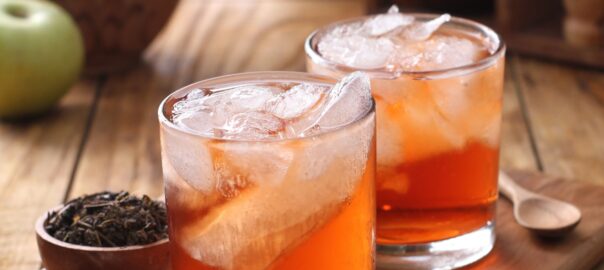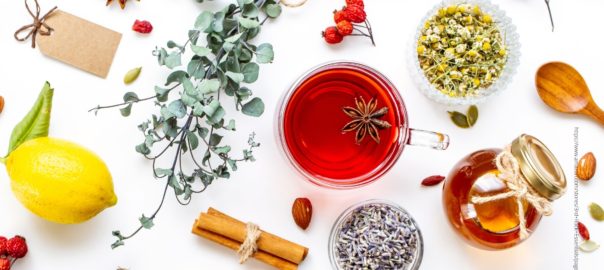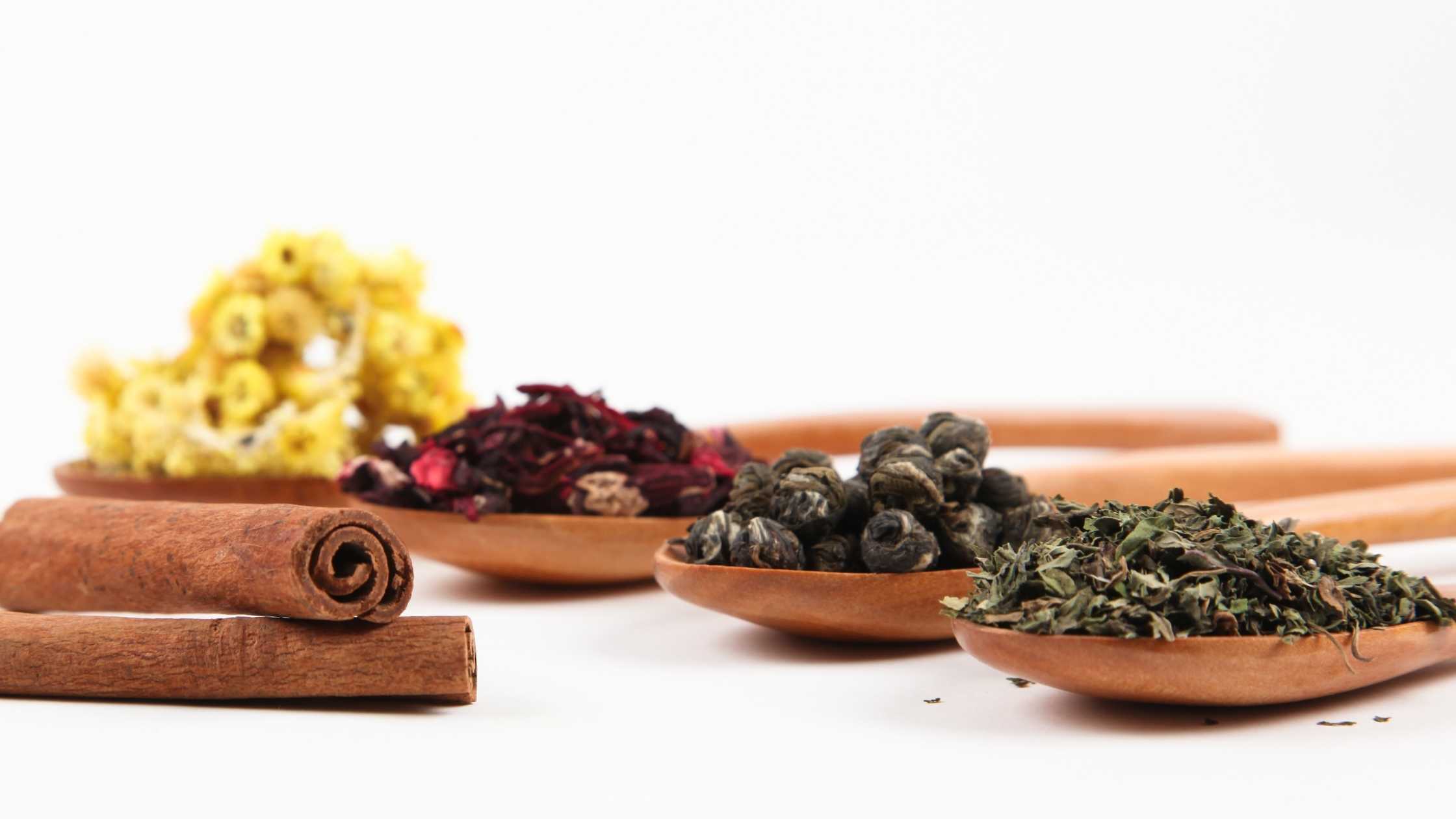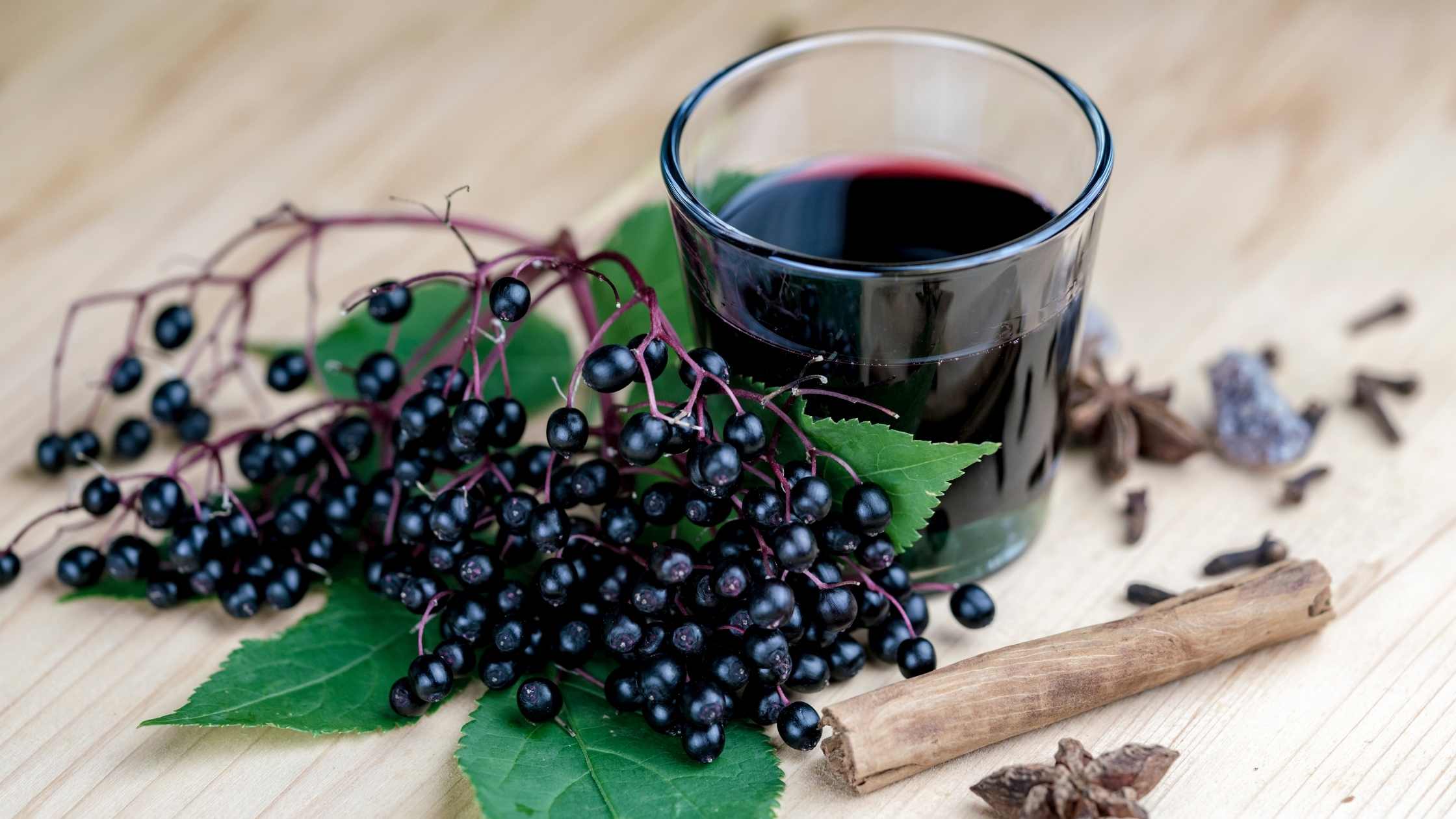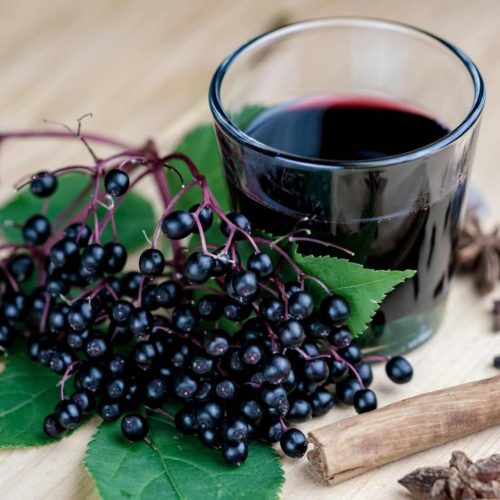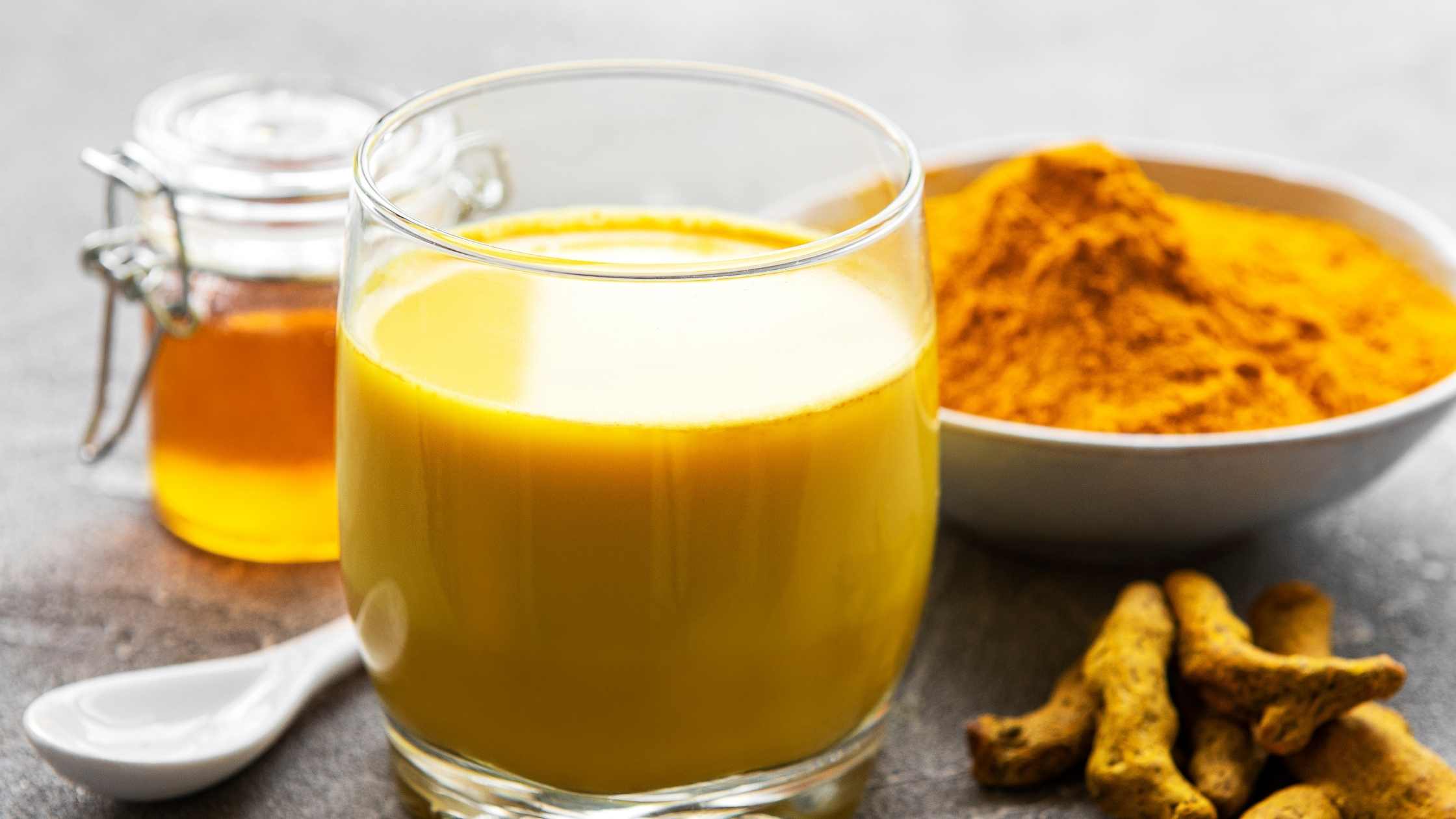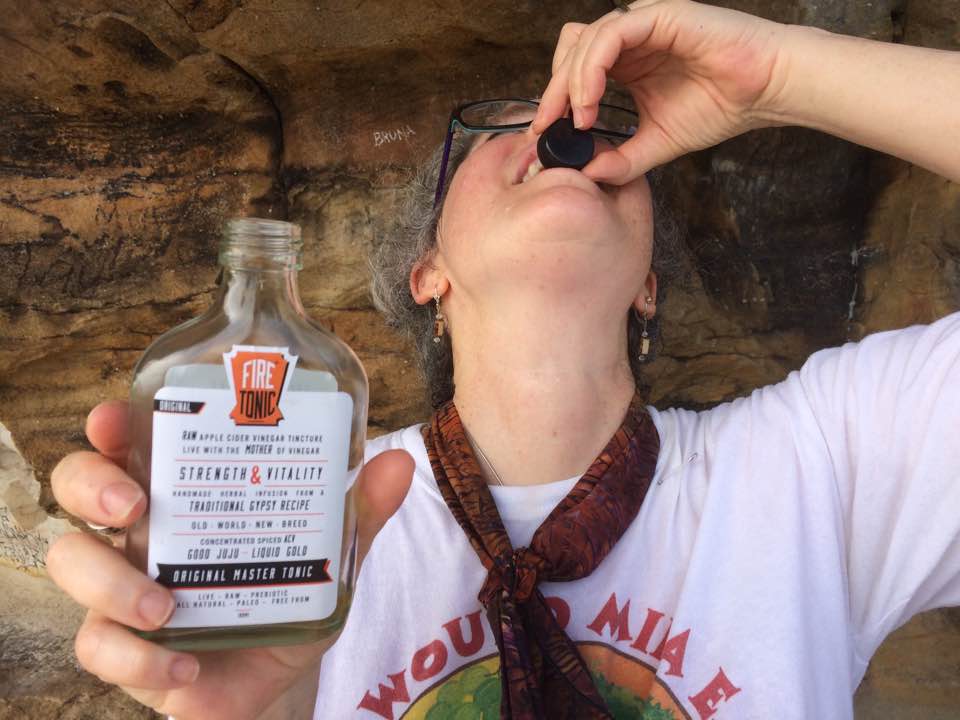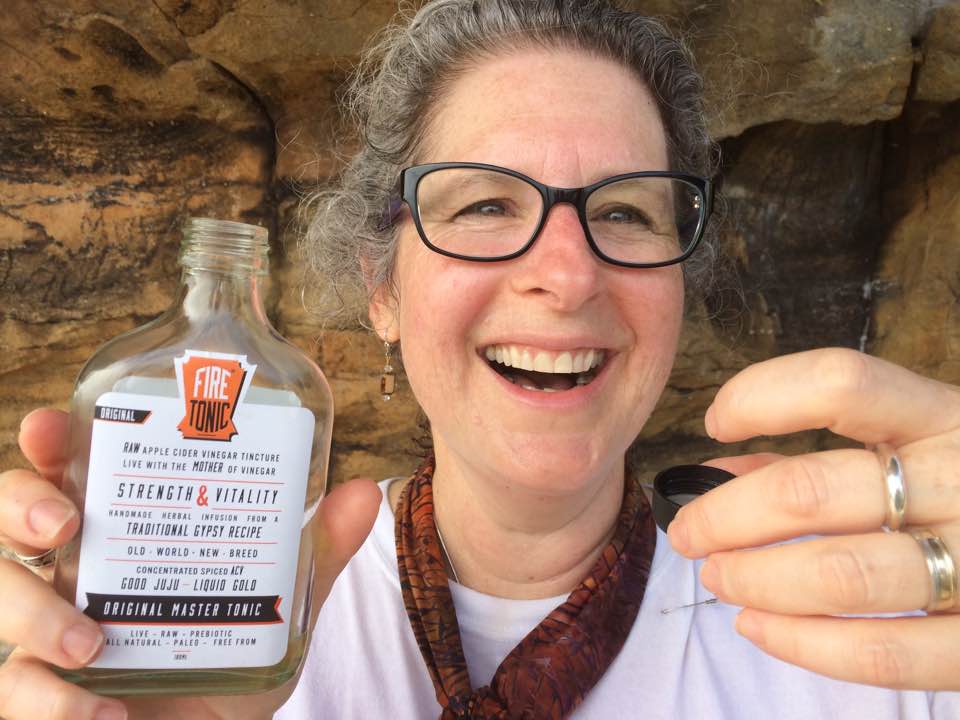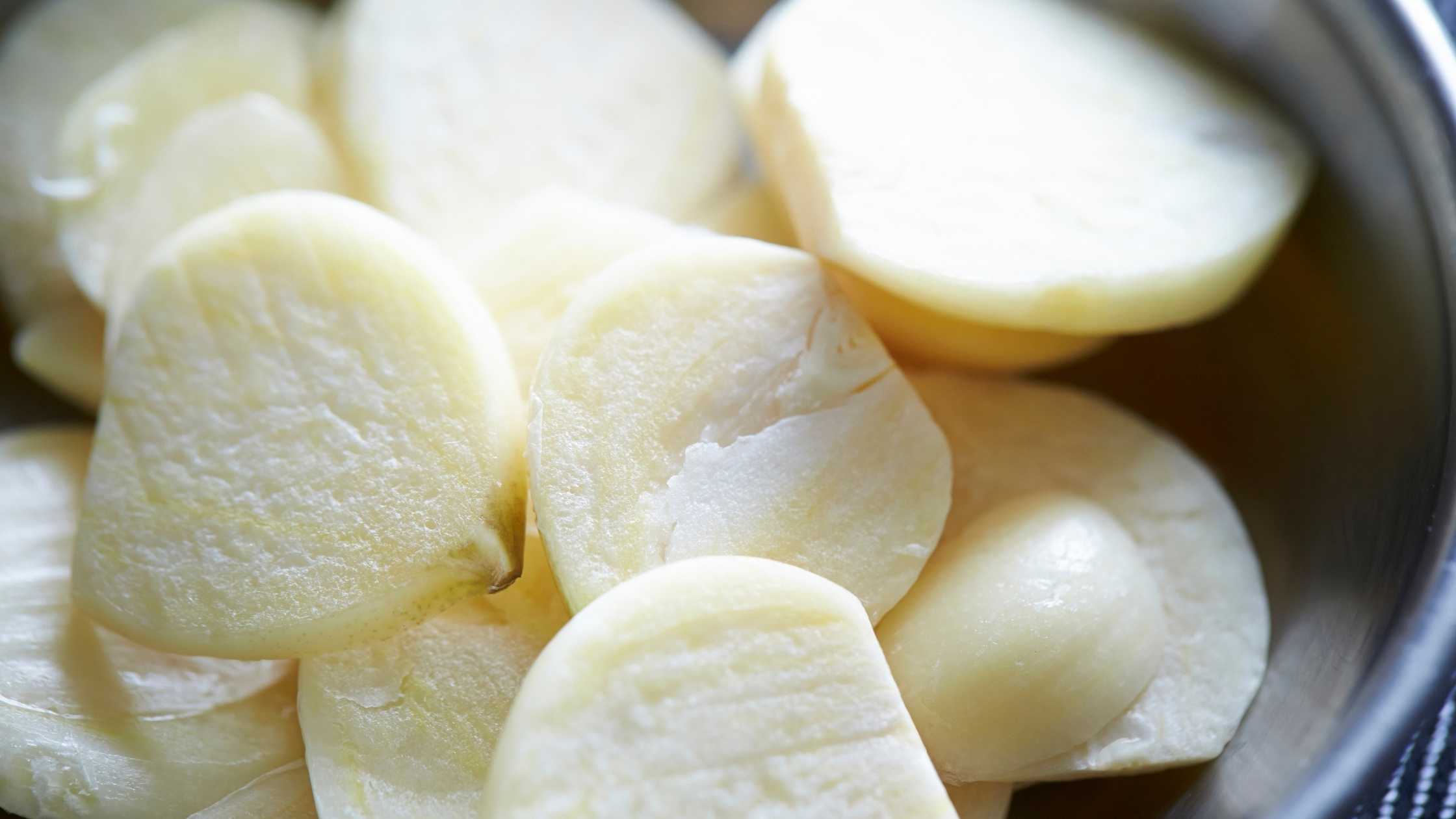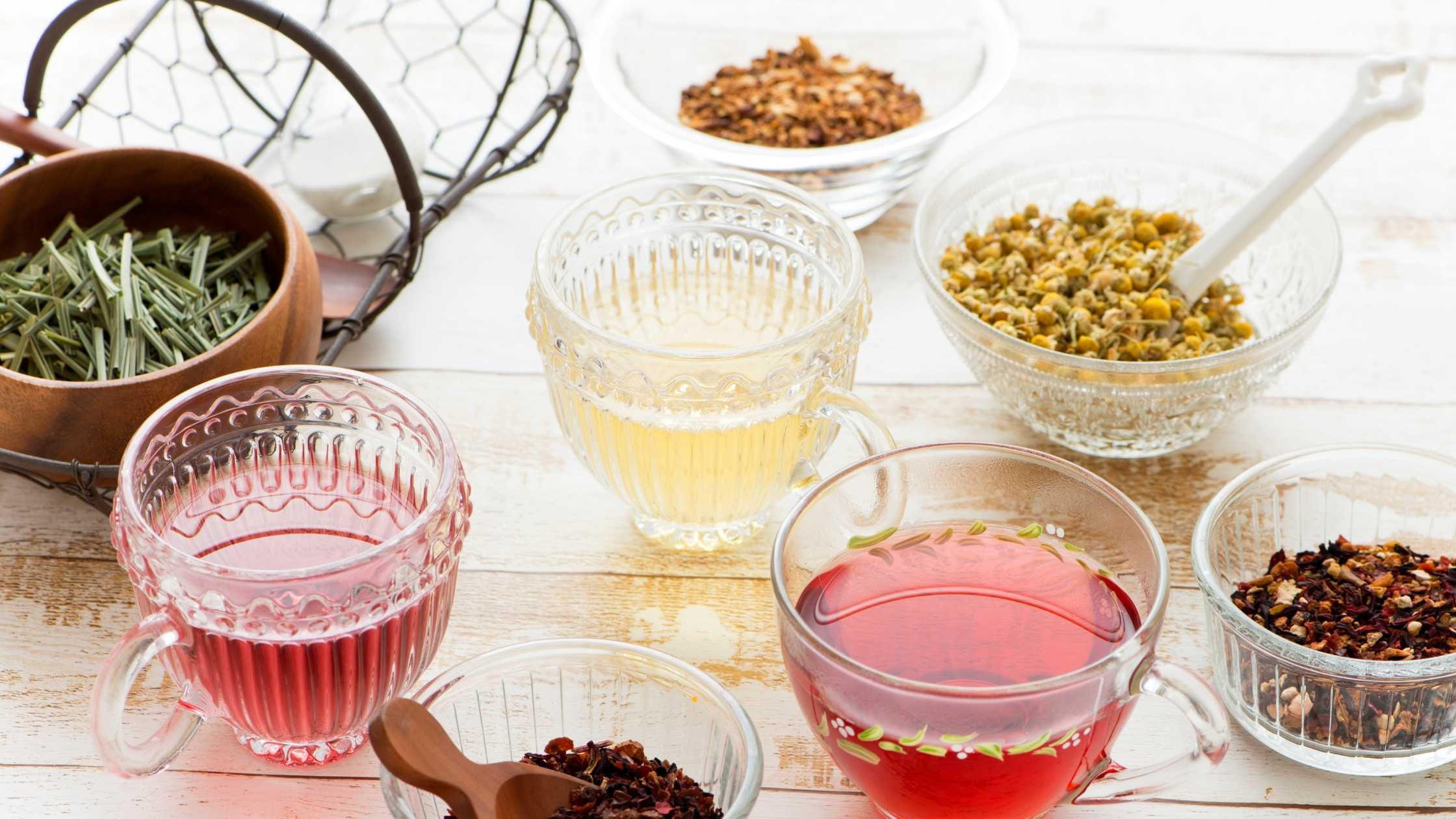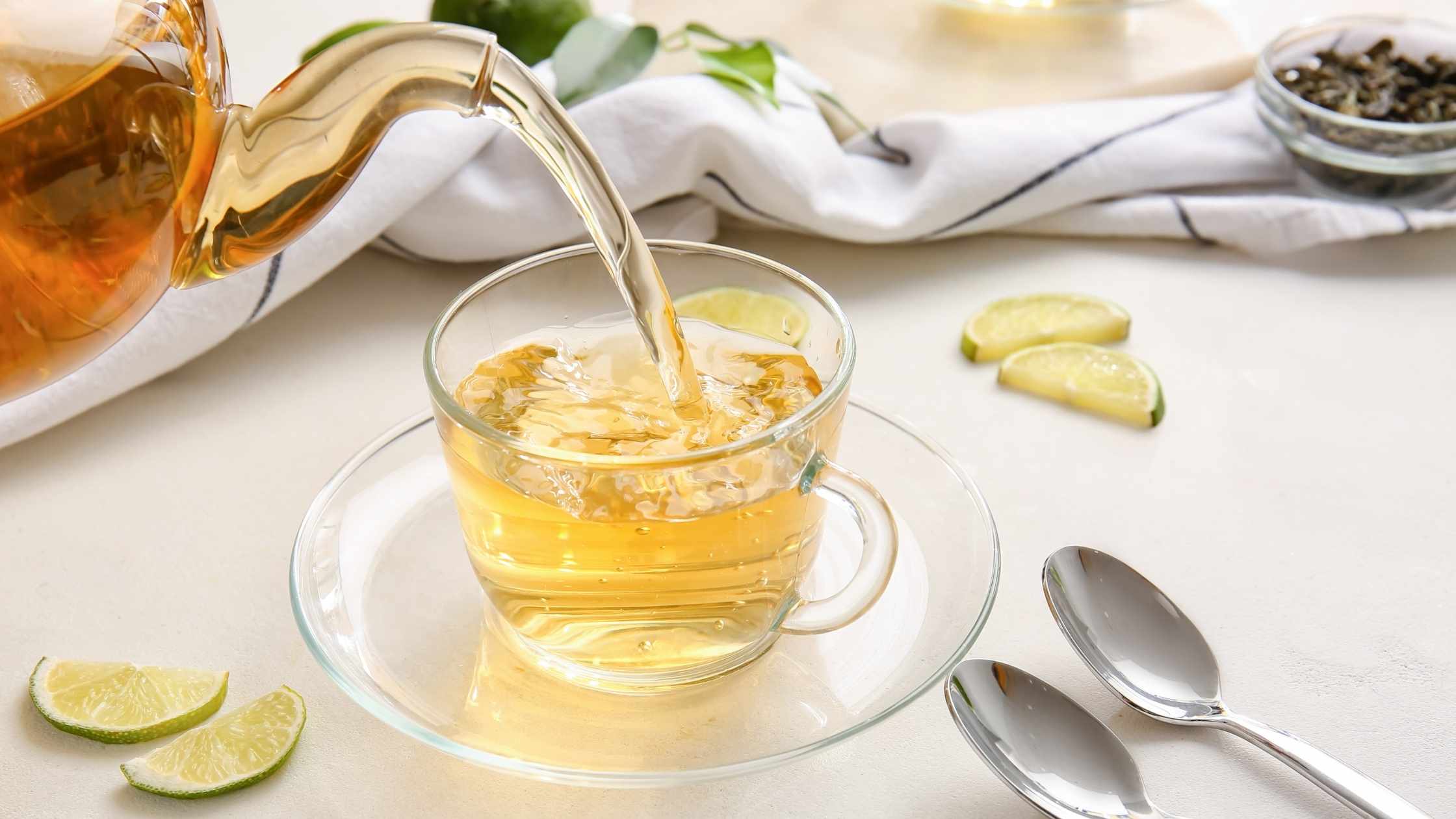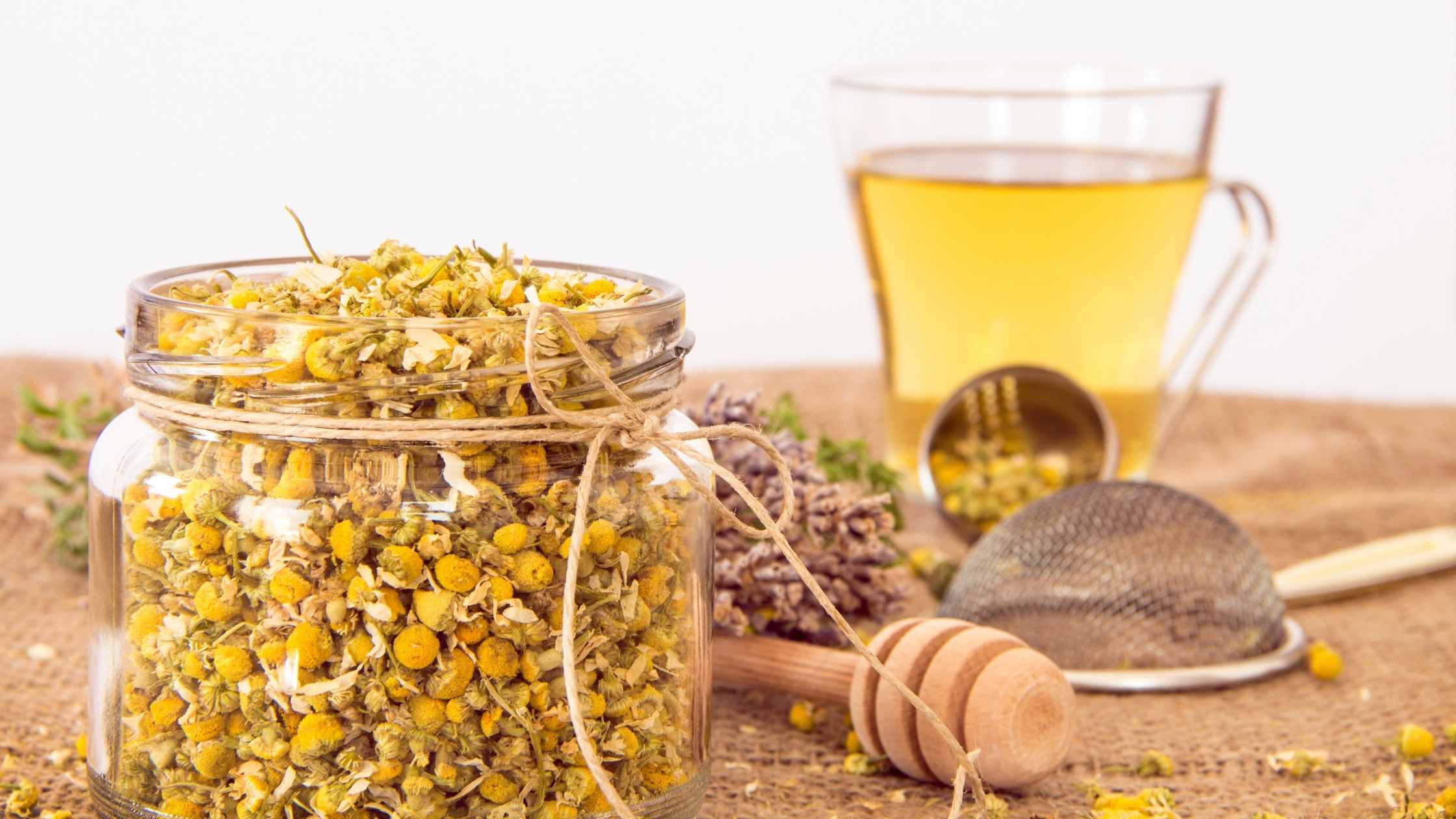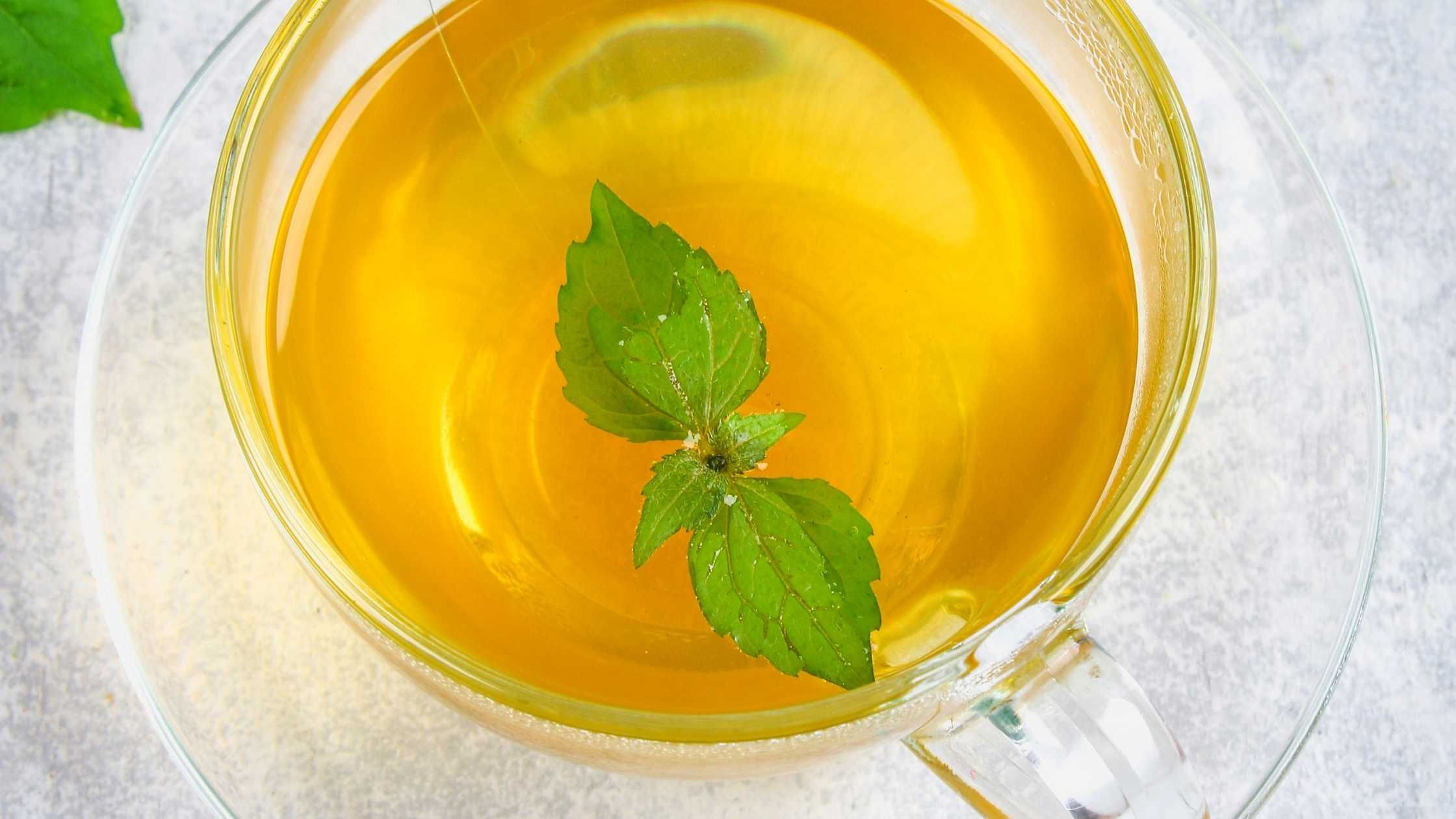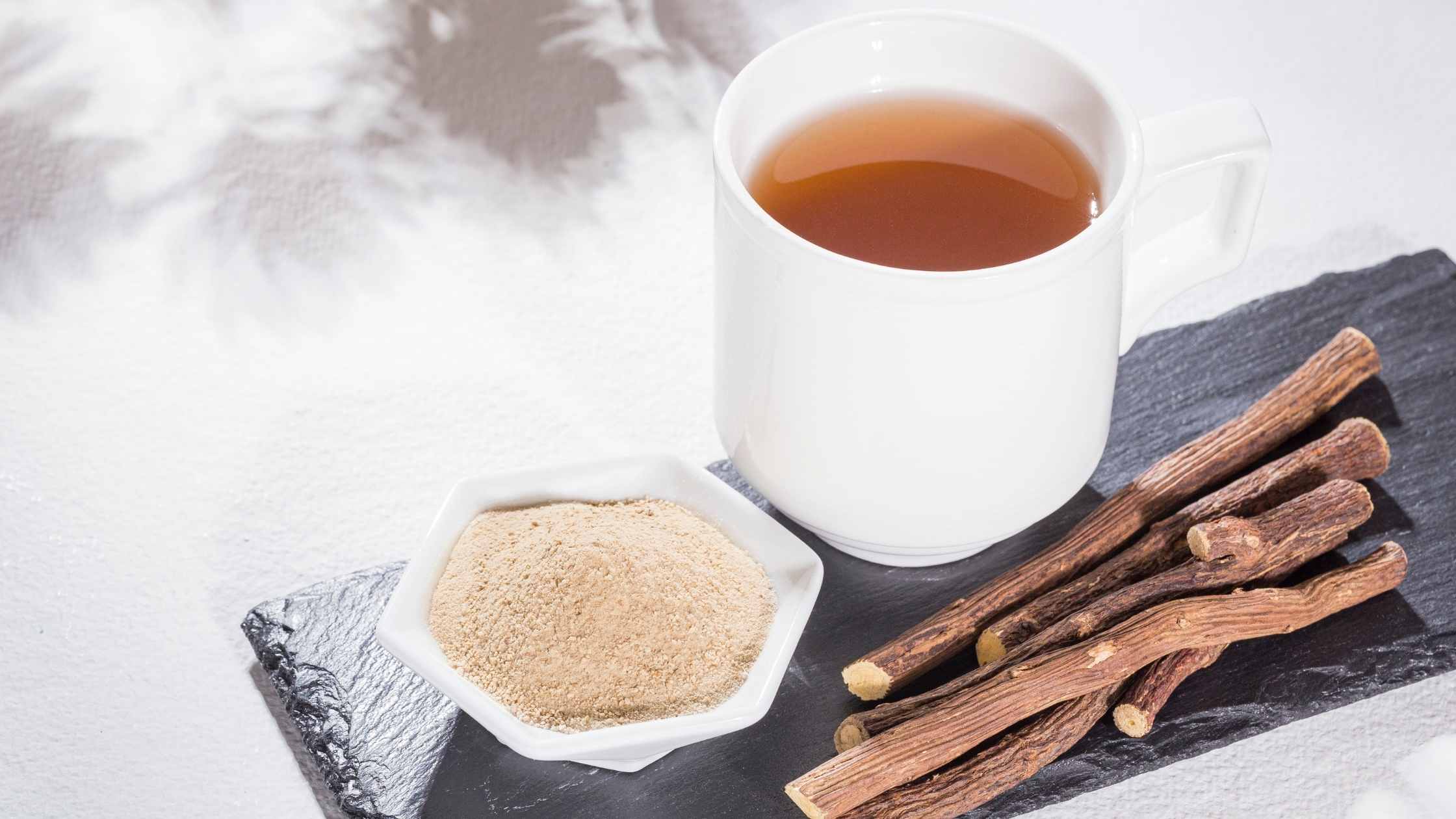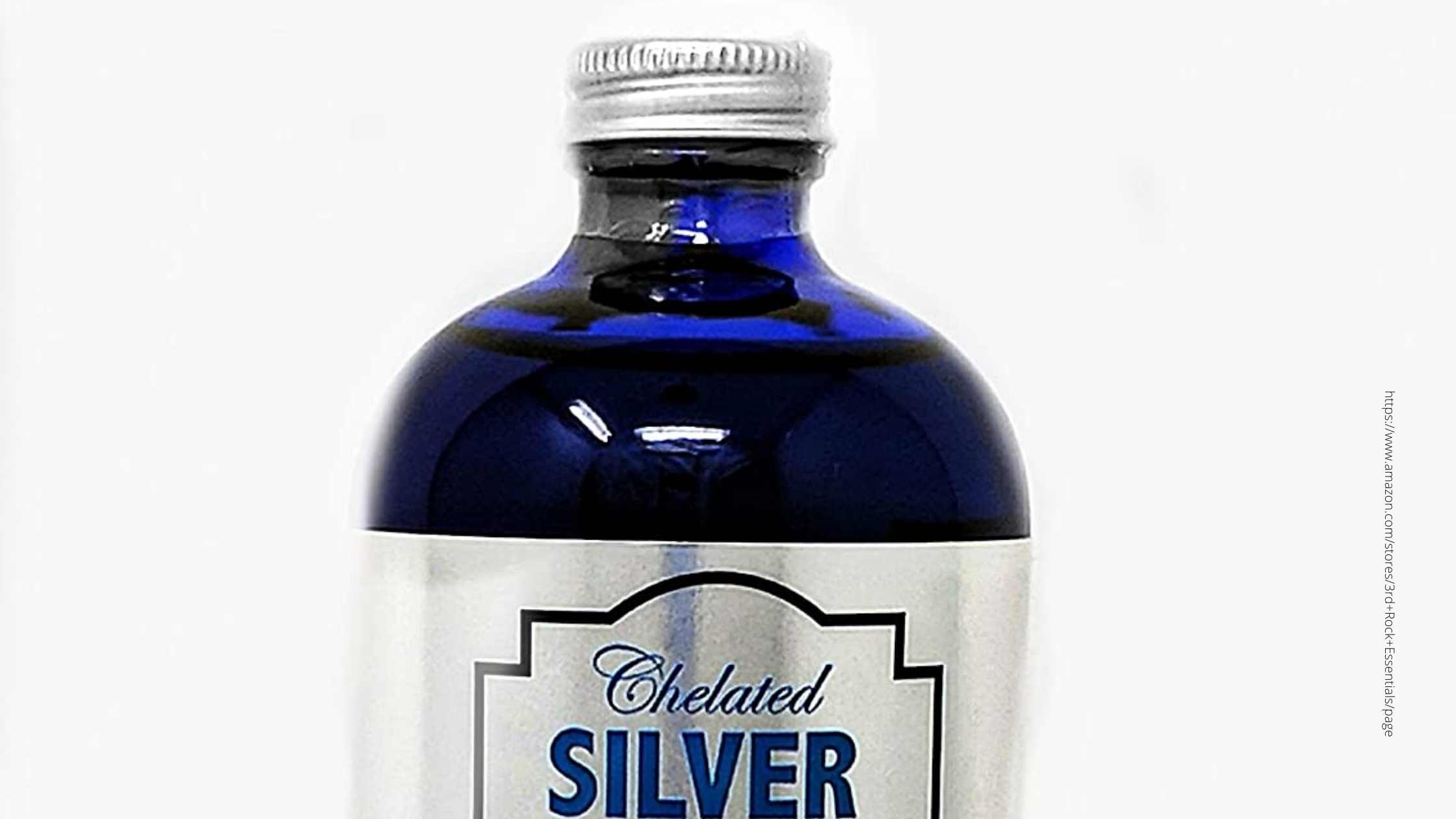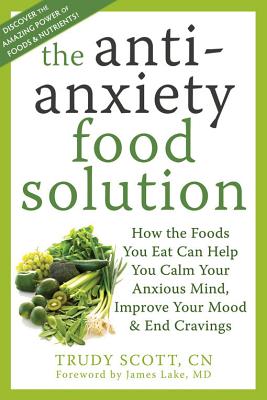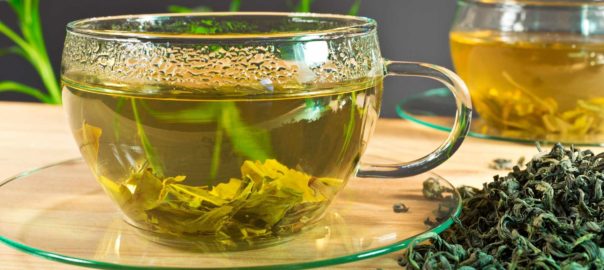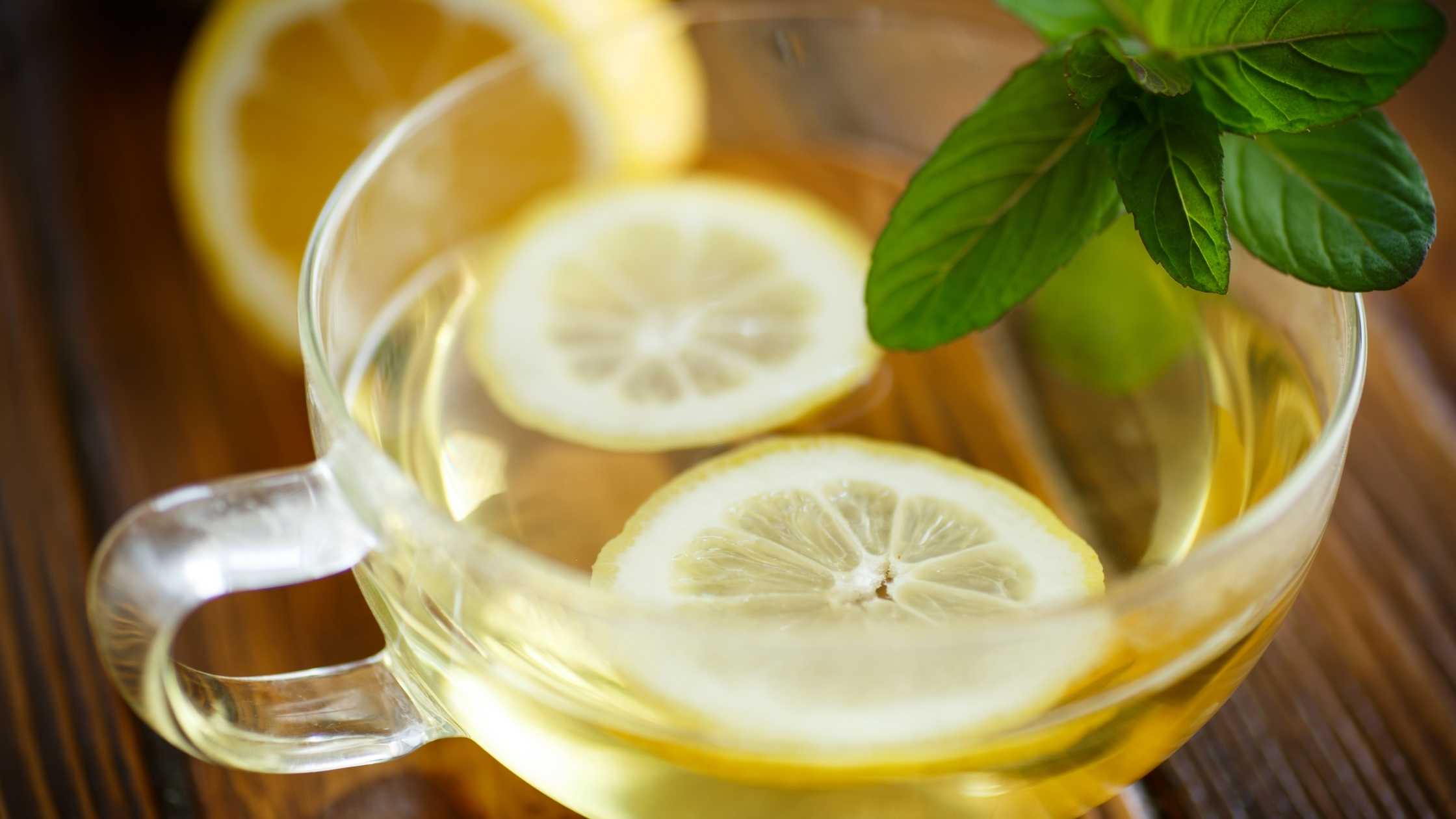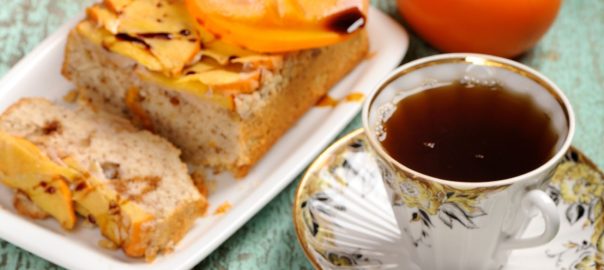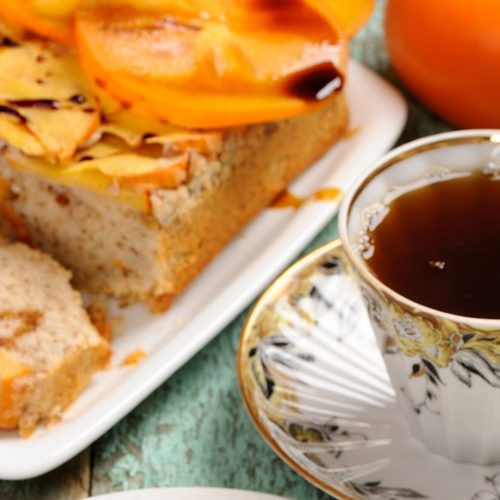Why drink herbal tea in the summer?
- Herbal teas are hydrating and can help replace fluids lost from sweating
- Many herbs have cooling properties providing relief on hot days
- Many herbs are high in antioxidants, always a good thing to add to your diet
- Certain herbs may support better digestion
- Peppermint - A delicious and fragrant herb, it is supportive for digestion, energy levels, and even for reducing headaches.
- Hibiscus - This vitamin C-rich herb is both tart and refreshing. Plus it has antioxidant properties, can help lower blood pressure, and has been shown to improve cholesterol levels.
- Lemongrass - With its bright citrusy flavor, lemongrass is a perfect summertime flavor. Another highly antioxidant herb, it can also support good digestion.
- Rose - Flavorful and also highly antioxidant, compounds in rose tea can reduce stress.
- Lavender - Soothing and relaxing, studies have shown drinking lavender tea can reduce fatigue and improve mood.
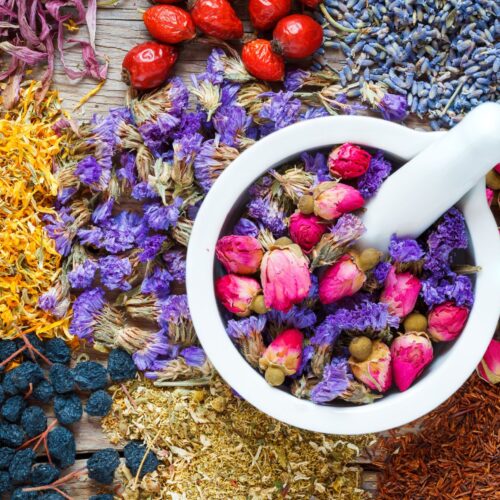
Refreshing Herbal Tea Blends
Ingredients
- Minty Lemonade Herbal Tea
2 parts peppermint
1 part lemongrass
1 part hibiscus
- Lavender Rose Iced Tea
2 parts lavender
1 part rose petals
1 part lemon verbena
- Ginger Peach Detox
2 parts ginger root
1 part peach leaves
1 part dandelion root
- Citrus Mint Cooler
2 parts peppermint
1 part lemon peel
1 part orange peel
- Berry Hibiscus Refresher
2 parts hibiscus
1 part strawberry leaves
1 part raspberry leaves
Instructions
- Add the dried herbs to the French press
- Pour the boiling water over the herbs
- Put the lid on the French press with the plunger up
- Allow the herbs to steep for 5-7 minutes
- After steeping, slowly press down the plunger to strain out the herbs
- Pour the hot herbal tea concentrate into a heat-proof pitcher
- Add ice cubes to the pitcher until it's full
- Stir well and add sweetener if desired
- Serve over ice and enjoy!
How to infuse herbal tea blends
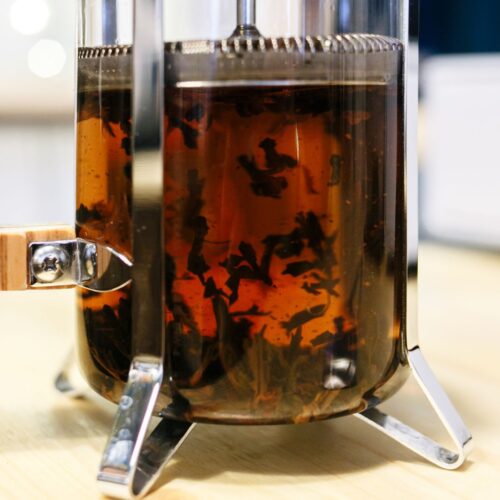
Making Herbal Iced Tea with a French Press
Ingredients
- 4-6 tablespoons of dried herbal tea blend
- 4 cups of boiling water
- Ice cubes
- Sweetener like honey or sugar (optional)
Instructions
- Add the dried herbs to the French press
- Pour the boiling water over the herbs
- Put the lid on the French press with the plunger up
- Allow the herbs to steep for 5-7 minutes
- After steeping, slowly press down the plunger to strain out the herbs
- Pour the hot herbal tea concentrate into a heat-proof pitcher
- Add ice cubes to the pitcher until it's full
- Stir well and add sweetener if desired
- Serve over ice and enjoy!
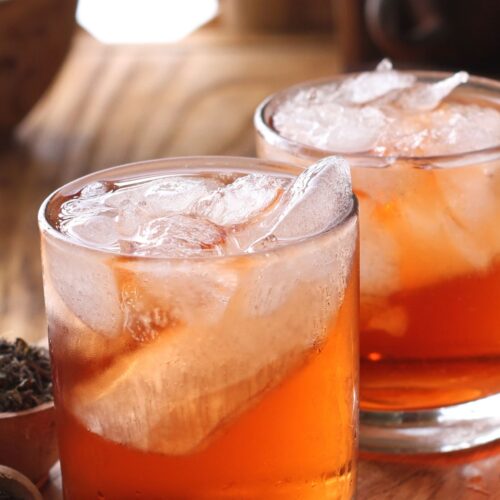
Making Herbal Iced Tea by Infusion
Ingredients
- 2-4 tablespoons of dried herbal tea blend
- 4 cups of boiling water
- Ice cubes
- Sweetener like honey or sugar (optional)
Instructions
- Pour the room temperature or cool water over the herbs
- Pour the boiling water over the herbs and let sit 20-30 minutes
- After infusing remove the herbs and the filter
- Pour the herbal tea concentrate into a large pitcher
- Add ice cubes to fill the pitcher
- Stir well and add sweetener if desired
- Serve over ice and enjoy!
Notes
I'm thrilled that you’re enjoying this blog and the wonderful holistic nutrition and lifestyle information I'm sharing. This recipe is part of our exclusive membership content. To take your culinary adventures to the next level, I invite you to join the membership community. When you do you’ll gain access to exclusive recipes plus a treasure trove of benefits including special programs, free eBooks, and live monthly calls with me, The Ingredient Guru.
Sign up today to unlock all these perks and more!

